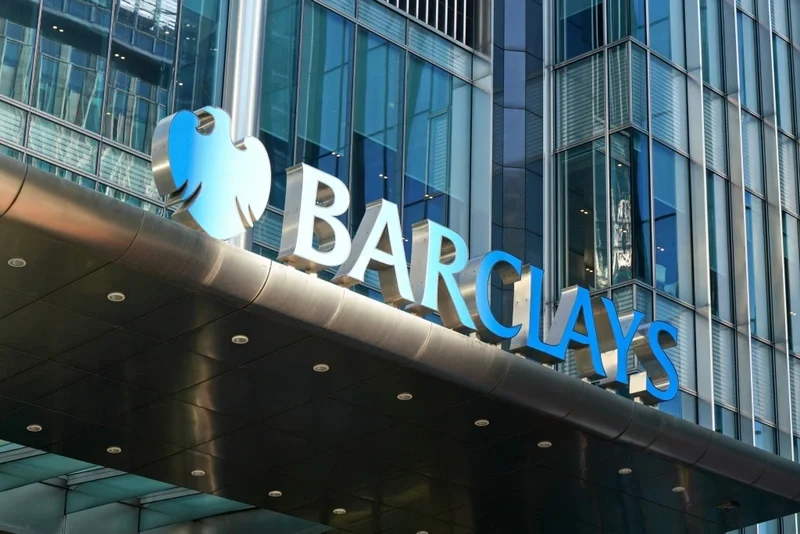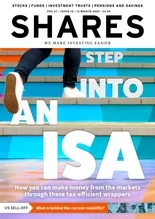
London share prices opened lower on Thursday, amid a big day for European company earnings and US economic data.
Market sentiment was weighed down by uncertainty about the trajectory for the US economy and the knock-on effect of this worldwide, amid concern around the US banking sector.
The FTSE 100 index opened down 13.51 points, or 0.2%, at 7,839.84. The FTSE 250 was down 49.78 points, or 0.3%, at 19,158.19, and the AIM All-Share was down 1.38 points, or 0.2%, at 820.46.
The Cboe UK 100 was down 0.1% at 784.48, the Cboe UK 250 was down 0.2% at 16,805.67, and the Cboe Small Companies was down 0.1% at 13,701.73.
In London, Barclays rose 3.0%, the best blue-chip performer in early morning trade, after it said all three of its businesses performed well in the first quarter of 2023, with high-quality income growth and double-digit returns.
The bank reported pretax profit of £2.60 billion, up from £2.23 billion a year prior. Total income amounted to £7.24 billion, up from £6.50 billion.
Barclays’ return on tangible equity was 15.0%, compared with 11.5% in the same quarter a year prior. Its CET1 ratio was 13.6% at the end of March, down from 13.9% at the end of December.
The lender said it remains on track to deliver is 2023 targets, with all its performance metrics in line with or ahead of guidance at the first quarter.
Unilever shares climbed 1.7%.
The consumer goods firm noted broad-based growth across all its business groups and geographies in the first quarter of 2023. It reported turnover of €14.8 billion, representing a 7.0% increase against the previous year.
Looking forward, Unilever said it expects to deliver another year of strong underlying growth in 2023, with an improved volume performance compared to 2022. It now expects underlying sales growth for the full-year to be at least at the upper end of its range of 3% to 4%.
Unilever reported that underlying sales growth was 10.5% in the first quarter. This beat market consensus according to Bloomberg of 7.5%.
AstraZeneca added 1.3% after it said it made a ‘strong start’ to 2023. The drug maker posted only a slight dip in first-quarter revenue, despite a decline in takings from Covid-19 medicines.
Revenue in the quarter totalled $10.88 billion, down 4.5% from $11.39 billion the previous year. AstraZeneca noted that when excluding the sales of Covid-19 medicines, revenue grew by 15% year-on-year.
Astra’s pretax profit multiplied to $2.26 billion from $553 million.
J Sainsbury shares fell 0.4%
The supermarket chain reported a drop in annual profit, saying it has spent £560 million on keeping prices low for customers amid the cost of living crisis.
Sainsbury’s reported that revenue in its financial year ended March 4 rose by 5.3% to £31.49 billion from £29.90 billion a year earlier. However, pretax profit plummeted by 62% to £327 million from £854 million.
‘UK supermarkets are set to face more challenges before things improve, as food inflation in the country hits a 45-year high, commented Orwa Mohamad, an analyst at research house Third Bridge.
‘As if that wasn’t enough, a new supply chain crisis has emerged, causing fruit and vegetable shortages that make up a whopping 10% of supermarket sales. Our experts expect food inflation to start coming down in H2 of 2023 as we lap comparables from last year due to initial lag in price increases. Supermarkets will be looking to pressure suppliers for price reductions in order to reduce prices for consumers.’
In the FTSE 250, Howden Joinery fell 4.7%.
Howden reported that revenue in its UK depot was 0.2% lower than the prior year and 1.6% lower on a same depot basis, reflecting ‘very strong prior year revenue comparatives’.
Meanwhile, depot revenue in the firm’s international businesses increased by 16.8% in local currency, but was 3.8% lower on a same depot basis, compared to the equivalent periods last year.
Elsewhere in London, Petrofac dropped 6.7% as it reported lower revenue and a widened net loss in 2022.
The energy infrastructure services provider reported a net loss of $310 million, widened from $245 million the previous year. Its loss before interest, tax, depreciation and amortisation widened to $138 million from $86 million the year prior. Revenue fell to $2.59 billion from $3.03 billion.
Chief Executive Tareq Kawash said Petrofac’s performance for 2022 was ‘severely impacted’ by the challenges in the its legacy Engineering & Construction portfolio, which continued to feel the ‘direct and indirect’ effects of pandemic delays.
Wall Street ended largely lower on Wednesday, with the Dow Jones Industrial Average down 0.7% and the S&P 500 down 0.4% but the tech-heavy Nasdaq Composite up 0.5%.
Technology stocks ended higher, following well-received earnings from Microsoft and Alphabet, while other blue-chips faltered as bank shares fell further, weighed down by fears of further turmoil in the sector.
Alphabet numbers were well received, although the stock slipped back 0.1% after opening higher. Shares in Microsoft rose 7.2% after it reported increased revenue and earnings in its financial third quarter, boosted by solid growth in its cloud division.
Facebook-owner Meta Platforms, which reported after the closing bell on Wednesday, also posted positive earnings. Shares in the firm rose 12% in after-hours trade in New York, as it reported better-than-expected revenue in the first quarter and issued positive guidance for the next three months.
Meanwhile, among US banks, Bank of America close down 1.4%, Wells Fargo down 2.7% and JPMorgan Chase down 1.8%.
This came as shares in First Republic slid a further 30% on Wednesday, after halving the day before, as regulators, big banks and potential bidders for its assets all held back from stepping in to help the embattled San Francisco lender.
‘No one knows at this point what will happen to FRC, but we know that the FRC crisis gets investors to wonder whether the Federal Reserve will go ahead with next week’s so-far-mostly-certain 25 basis point hike or not,’ said Ipek Ozkardeskaya, senior analyst at Swissquote Bank.
The US Federal Reserve will announce its interest rate decision on May 3.
The pound was quoted at $1.2466 early on Thursday in London, lower compared to $1.2472 at the close on Wednesday. The euro stood at $1.1045, unchanged against $1.1046.
Francesco Pesole at ING said the rally by the euro against the dollar over recent days is ‘testament’ to how markets seem to favour the euro among other currencies in instances when the dollar falls on the back of Fed dovish repricing and US banking concerns.
This time last week, the euro traded around $1.09.
In European equities on Thursday, the CAC 40 in Paris was flat, while the DAX 40 in Frankfurt was 0.2% lower.
The year is off to a stronger start than expected at Deutsche Bank, with first quarter pretax profit growing 12% to €1.85 billion. This is the highest quarterly profit result since 2013, the bank said.
In releasing its first quarter results, Germany’s largest lender announced it wants to drive earnings even higher and so will find way to further cut costs.
The stock was 0.6% lower in Frankfurt on Thursday morning.
In Tokyo on Thursday, the Nikkei 225 index ended 0.2% higher.
The Bank of Japan decides on its monetary policy on Friday. You-Na Park-Heger, analyst at Commerzbank, said it will ‘no doubt’ be interesting.
‘First of all, it is the first meeting under the new BoJ governor Kazuo Ueda. Secondly, inflation remains at elevated levels: core inflation has even risen further in March. This gives renewed rise to the question whether the BoJ’s ultra-expansionary monetary policy is still appropriate,’ Park-Heger said.
‘For some time now there has been speculation on the market that the BoJ might move away from its expansionary monetary policy going forward. However, Ueda’s recent comments give the impression that the BoJ might want to maintain the status quo for now.’
Against the yen, the dollar was trading at JP¥133.64, higher compared to JP¥133.54.
In China, the Shanghai Composite closed up 0.7%, while the Hang Seng index in Hong Kong closed up 0.1%.
The S&P/ASX 200 in Sydney closed down 0.3%.
Brent oil was quoted at $77.90 a barrel at early in London on Thursday, down from $80.29 late Wednesday. Gold was quoted at $2,001.05 an ounce, higher against $1,995.53.
Still to come on Thursday’s economic calendar, the US weekly unemployment claims report and an estimate of US gross domestic product in the first quarter will be released at 1330 BST.
Copyright 2023 Alliance News Ltd. All Rights Reserved.




